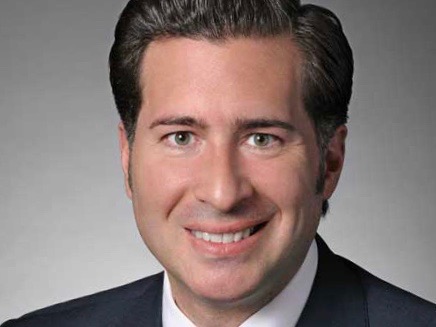House of Representatives likely to demand documents after Mueller report clears Trump of collusion, but doesn’t fully exonerate the president

The saga that’s been gripping the country for two years isn’t over just yet.
The partial disclosure on Sunday of Special Counsel Robert Mueller’s report into whether President Trump and his campaign conspired with Russia to influence the 2016 election revealed no collusion, but stopped short of exonerating the president.

Michael Meltsner, George J. and Kathleen Waters Matthews Distinguished University Professor of Law at Northeastern.
Next up, the House of Representatives is likely to demand the release of any underlying documents and testimony from various players, including Mueller himself, says Northeastern law professor Michael Meltsner.
The disclosure of the full findings could take weeks, Meltsner says, because the report would have to be scrubbed of grand jury testimony, which by law cannot be made public unless a federal judge waives that provision.
“In the interim, the politics of this are largely positive for the Trump administration, and they will loudly proclaim victory and indicate they’ve been saying this all along,” says Meltsner, George J. and Kathleen Waters Matthews Distinguished University Professor of Law at Northeastern.
True to form, President Trump wasted no time in declaring victory, tweeting: “No Collusion, No Obstruction, Complete and Total EXONERATION. KEEP AMERICA GREAT!”
No Collusion, No Obstruction, Complete and Total EXONERATION. KEEP AMERICA GREAT!
— Donald J. Trump (@realDonaldTrump) March 24, 2019
As Trump and his supporters celebrated the announcement by Attorney General William P. Barr, who summarized the report’s findings in a letter to lawmakers Sunday, opponents of the president were left to grapple with many unanswered questions, both about the scope of the investigation, and the findings that have surfaced as a result of it.
“For many, the Mueller report may not provide closure, especially if there are allegations of activities that were problematic that the Mueller report didn’t go so far as to indict anybody for, but that some in Congress may believe it should have done so,” says Northeastern political science professor Costas Panagopoulos.

Costas Panagopoulos, professor of political science and director of big data and quantitative initiatives within the College of Social Sciences and Humanities.
What the disclosed findings do not show is how any of the president’s actions came close to crossing the line of legality, and whether the House of Representatives will begin an impeachment investigation.
Panagopoulos also contends that congressional Democrats will likely seek to continue the investigation, particularly in the House of Representatives, where Democrats will be able to pursue it in various committees. Regarding the question of impeachment, he says because it isn’t predicated on criminal activity, impeachment is still a possibility, but reiterated that that would depend upon the full report being made public.
“I don’t think the Mueller report is the final word on all of the questions related to Trump, and I think that once the report is fully shared with Congress, if it is, it’s likely to raise some questions that Congress will determine will require additional investigation,” Panagopoulos says.
Shortly after Barr’s summary was sent to Congress, Representative Jerrold Nadler, a Democrat from New York and the chairman of the House Judiciary Committee, tweeted that his committee would call on the attorney general to testify “in light of the very concerning discrepancies and final decision making at the Justice Department” following Mueller’s report.
In light of the very concerning discrepancies and final decision making at the Justice Department following the Special Counsel report, where Mueller did not exonerate the President, we will be calling Attorney General Barr in to testify before @HouseJudiciary in the near future.
— Rep. Nadler (@RepJerryNadler) March 24, 2019
Meltsner says he also anticipates the focus shifting to other ongoing investigations of Trump associates, the Trump business, the Trump inauguration, and the Trump Foundation, in New York, Washington, D.C., and elsewhere.
“The many investigations into his behavior and his business’ behavior and his family’s behavior are not over,” he says.
And so, depending on what comes next, Panagopoulos says today’s disclosure could herald a new national drama related to the Mueller report.
If the report is not fully disclosed, he says, “it will only ignite a whole new controversy over whether it should be disclosed and what some are trying to hide and that will only fuel the flames of other allegations that will keep this national drama going.”
But it is also conceivable, he says, that the full report makes it abundantly clear that there is no evidence of any improper activity by Trump and his aides.
For media inquiries, please contact media@northeastern.edu.